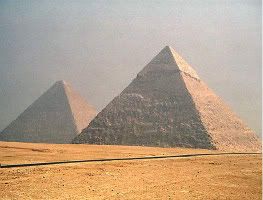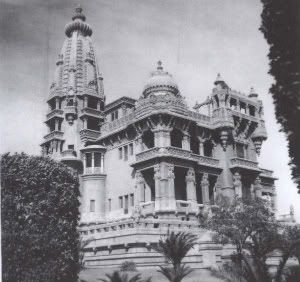Copyright © 2009 Aleya Rouchdy, All Rights Reserved
A call for papers to be published in an issue of The International Journal of the Sociology of Language prompted me to write this post. The theme of the issue is "Language and Religion." It is, nowadays, a very a propos topic.
The question is how does religion impact a language? This can partially be answered by examining, as an example, the use of Arabic in the US.
Religion is one form of identity, and when identity formation is sought, the need for ideological support arises. There is no question that there is a religious revival among Arab Americans Muslims, and Muslims in general in the US. It is an extension of the religious revival that has occurred in the Arab world and Muslim world.
The cause of such revival, although interesting, is not the topic of discussion on this post.
The question is how does religion play a role in the maintenance /shift of the Arabic language among Arab American Muslims?
Most studies of minority languages or ethnic languages are consistent in their conclusions that the use of ethnic language gradually decreases with successive generations due to a process of assimilation. There are certain events, however, that might lead to an ethnic revival. Religion is one such event.
The earliest groups of Arab Americans, those who immigrated after World War II, Christian and Muslims, tried to disassociate themselves from their ethnic heritage, especially its language, because of how they were viewed by others. Actually, as a reaction to the prevailing anti-ethnic feeling and the pressure of conformity and assimilation, some Arab Americans went so far as to Anglicize their names to escape discrimination at work or when applying for jobs, such as: Mohmad became Mike, Saleh became Sally, Bushra became Bouchard...etc.
Since the mid 1960s there has been a shift toward acceptance of ethnicity. This shift is due to three major social changes, both in the US and the Arab world: the civil rights movement in the US; the convoluted political events widespread in the Arab word continue to provide strong reasons for immigration, hence, the number of fluent speakers is increasing in the US; the revival of Muslim identity has created a need for the language with which one can fulfill his/her religious duties. In other words, this revival of Muslim identity has created a special function for Arabic - a religious function - because only Arabic can be used to fulfill the obligation of the most important pillar of Islam, the prayer.
This revival of Muslim identity is apparent on Fridays in Dearborn, Michigan, where most mosques are full at the time of the noon prayer and where women walk to the mosques wearing Islamic attire.
Did the political events following the 9/11 attack on the US affect the maintenance of Arabic among Arab American Muslims? It did not.
Recently, in Detroit, there has bee a revival in the use of Arabic among Arab Americans. This revival is reflected in the increasing number of Arabic television programs, newspapers, and cable networks that transmit directly from the Arab world. Furthermore, national religious academies have been established; private schools, where Arabic and Islamic studies are taught, have been opened. Arabic as a foreign language is taught in some public schools. Moreover, there is a definite increase in enrollment in Arabic classes in universities in Michigan, as well as other American universities (see post 8/26/09 on Can Arabic Survive in America).
I would like to conclude this post by stressing the fact that although religion is related to the maintenance of Arabic in the US, increasing interest in the Arab world plays also a major role in the preservation and expansion of the language among Arab Americans and many Americans with no Arabic background. This is mainly due to political and economic reasons.
There are many other examples where religion plays an important role in the maintenance, shift or revival of a language.
Any contribution to this topic is welcomed.
Nov 2, 2009
Subscribe to:
Post Comments (Atom)





My research in Brazil among Lebanese immigrants in São Paulo shows similar findings regarding Arabic language maintenance and usage in religious services.
ReplyDeleteYour readers may find this article helpful if they are interested in this topic of langauge and religion.
Spolsky, Bernard. “Religion as a Site of Language Contact.” Annual Review of Applied Linguistics 23 (2003): 81-94.
- Dr. Christine Guedri christine.guedri@usma.edu
Thank you Christine for the article. It is a good one.
ReplyDeleteDid you find that the Lebanese in Brazil are interested in learning MSA? Or, do they maintain a colloquial Arabic spoken at home?
Among students in their twenties, some third generation Lebanese Brazilians were interested in learning MSA when they went to college. Actually, no one that I interviewed from the third generation could read or write in Arabic. Members of the second generation though tended to speak in dialect with older family members and at religious practices mostly.
ReplyDeleteChristine Guedri